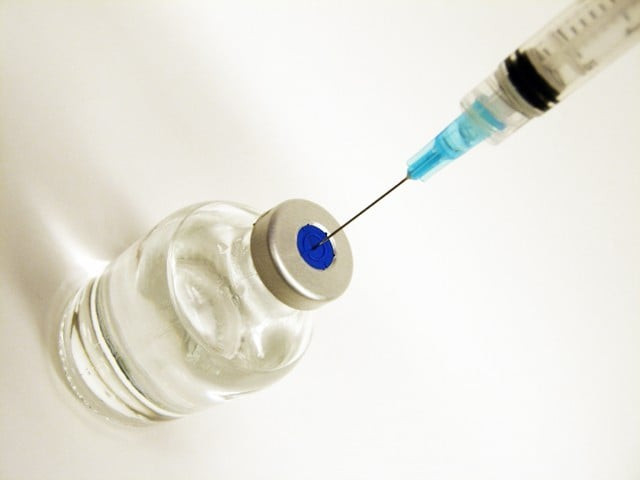Sindh rolls out HPV vaccine addressing technical, not social gaps
Inoculation to prevent cervical cancer to begin September 15

The human papillomavirus (HPV) vaccine to prevent cervical cancer will be rolled out from September 15 in Sindh, with health officials warning that community mistrust, persistent rumours and gaps in vaccinator training could undermine the campaign.
Around 50% of the target group is enrolled in schools, with coordination underway [between health officials and the] education department to facilitate in-school vaccinations, said Dr Rehan Baloch, speaking at the Globe HPV Seminar at Aga Khan Univeristy (AKU).
"We have earmarked around Rs 200 million for the HPV vaccine, with additional support from Gavi and other partners for advocacy and outreach," he said, stressing the need for stronger engagement with parents, teachers and healthcare providers.
The campaign will rely on paediatricians, gynaecologists and frontline workers to inform communities about HPV and cervical cancer prevention.
Sindh Expanded Programme on Immunisation (EPI) Project Director Dr Raj Kumar described the rollout as a "historic initiative" and said preparations were focused on operational logistics and microplanning at the union council level, drawing on experience from measles, typhoid and polio campaigns.
Officials said 20 million girls aged nine to 14 are registered in schools nationwide, with the remainder out of school. An estimated 70% of vaccinations will take place in schools and the rest are to be administered in community settings through partnerships with public and private sectors.
What is HPV?
Cervical cancer kills more than 300,000 women worldwide each year, with the heaviest death toll in low- and middle-income countries. In Pakistan, the disease is among the leading cancers in women and is often diagnosed too late, despite being largely preventable through timely vaccination.
The human papillomavirus (HPV) — a sexually transmitted infection — is responsible for 91% of cervical cancers globally. According to the World Health Organization (WHO), more than 291 million women are diagnosed annually and about 340,000 die from the disease, most in countries like Pakistan.
Recent estimates indicate that every year in Pakistan, 5,008 women are diagnosed with cervical cancer and 3,197 die from the disease, according to the Human Papillomavirus and Related Cancers, Fact Sheet 2023.
HPV has over 200 known types, classified into low-risk and high-risk categories. While most low-risk infections are asymptomatic and resolve on their own, high-risk strains HPV 16 and 18 are linked to 70-80% of cervical cancer cases. In Pakistan, nine out of 10 cases are caused by these two strains.




















COMMENTS
Comments are moderated and generally will be posted if they are on-topic and not abusive.
For more information, please see our Comments FAQ